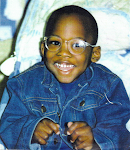
A few thoughts on the film For Colored Girls, as viewed through a Sekai Perspective. After all, that is the lens I use now.
Initial thought (excerpted from my Facebook post), on Saturday morning, after crying all the way home and going to bed early on Friday night:
At one point, my heart was beating so hard... I should have reread the choreopoem. I had completely forgotten "a nite with beau willie brown". Incredible movie. Critics say we don't need another movie about trauma in the Black community: No. We need less trauma in the Black community, in all communities.
 Another thought (also excerpted from my Facebook post, and additional thoughts based on friends' comments, and my responses to their comments):
Another thought (also excerpted from my Facebook post, and additional thoughts based on friends' comments, and my responses to their comments): I'm not sure why this is bothering me. I don't even know Tyler Perry. Anyway. Tyler Perry did not write and did not direct Precious. He produced (i.e., funded) it. Sapphire wrote (in 1996, might I add) the book Push: A Novel which serves as the basis for the film. Tyler Perry also did not write For Colored Girls. He did direct the film. (I think he did a good job, all in all, but that is not what this piece is about). Ntozake Shange wrote the choreopoem for colored girls who have considered suicide/when the rainbow is enuf (copyright date: 1975. 1975!). If art imitates life, and Black women created these pieces, why are folks ticked with Perry, but not about these experiences?
I cannot find the actual quote that I was looking for, but this situation causes me to remember when folks were all over Tupac Shakur for the lyrics in some of his songs. His response was to say that he was writing about what he saw, what he lived ("I'm a reflection of the community" is the closest quote that I can find), and to question why folks were more concerned about the fact that he said it than the fact that he lived it. That is what I have been thinking about since seeing For Colored Girls and reading all these negative reviews and critiques, especially the ones that specifically denounce Tyler Perry.
From what I have heard about his interview on Oprah (still on my DVR, I have not cued it up yet), Tyler Perry believes that we still need to think and talk about these issues because they have not been resolved. Sure, he has his own issues that he is still working to resolve (who doesn't?), but he is not the only one, and his issues are akin to (or exactly the same as) those of so many, too many. At that point, to me, he becomes a voice speaking out about the problem; but for some reason, he is being vilified by so many as if he is the problem. Back to my Saturday morning comment: We need less trauma. That is the problem. We need less trauma. Less abuse and less neglect (of others and self). Less pain, individually, collectively, communally. How do we get there?
If one is targeting a situation or behavior, it seems to me, one needs to be able to define and identify that situation or behavior, the triggers, and the consequences. Abuse and neglect can beget trauma. Poor self-image can beget faulty thinking, poor decision-making, and maladaptive coping skills, which can beget abuse, neglect, and trauma. Mental illness can beget abuse, neglect, and trauma. Poverty, lack of access to quality education, medical care, and social supports can beget abuse, neglect, and trauma. Injustice can beget abuse, neglect, and trauma. Each of these can also beget each of these: abuse and neglect can beget abuse and neglect, and so on, and so on. These issues, among others, are highlighted in the film For Colored Girls, as they are in the choreopoem upon which the book is based. For some reason, though, I have not seen a single review mention any of these issues, or even the fact that the movie is (as is the choreopoem) about the abuse, neglect, and traumatization of a particular segment of humanity. If we cannot talk about it, how will we ever address it, any of it? If we continue to focus our attention on red herrings or avert our gaze out of...what, embarrassment?..how will we ever address it, any of it?
With the publicity around the then-upcoming release of the film, people again turned to Shange for her perspective. In this video, she speaks about her experiences living with bipolar disorder and suicidal thoughts/ideations/tendencies (the latter are my words, not hers; she labels the bipolar disorder and mentions suicide attempts):
In this video, we hear Shange talk about how people told her not to seek assistance from a psychiatrist because a specialist might tell her that she was "crazy". We hear her talk about issues with medications, and determining the efficacy of medications. We hear her discuss her attempts (quoted here with descriptions of her attempts excerpted: "...then I _________.... I tried that a couple of times, and I never got the hang of it. On television, if you ____________ you died. I was really devastated! I thought, why’d you come now? I was almost gone. Another time, I tried _________, but I messed that up, too.... I guess it was not my time to go, not my time to go." Was it Sekai's time to go? Or did he just "get the hang of it"?
How many people are still trying to get the hang of it? Why? What happened to them? What needs were not met? What conditions were not adequately treated? What can we do to help them, to help us?
Why is this not the conversation being sparked by this film?







